Listen to this episode on Spotify or Apple Podcasts
It’s the holidays and many of us are seeing family members and coworkers and neighbors at parties. Sometimes the topic of Christianity comes up, and you may be having conversations about your beliefs. You may find yourself defending your belief in Jesus in general or even trying to convince trinitarian loved ones and friends to understand who he really is. In today’s episode Jeff Deuble explains how powerful and important presuppositions are in these conversations. Additionally, he recommends the approach of asking good questions to open the door to changing people’s minds.
Jeff Deuble is a retired pastor who has served in the Churches of Christ in Australia in various capacities for four decades. He’s also the author of the book, Christ before Creeds: Rediscovering the Jesus of History. A book that has a conversational and friendly approach which in my opinion makes it a more effective tool at winning people over.
—— Links ——
- Check out these other podcast episodes with Jeff Deuble
- Get Christ before Creeds (English) or Cristos ante los credos (Español)
- Get the transcript of this episode
- Support Restitutio by donating here
- Join our Restitutio Facebook Group and follow Sean Finnegan on Twitter @RestitutioSF
- Leave a voice message via SpeakPipe with questions or comments and we may play them out on the air
- Intro music: Good Vibes by MBB Attribution-ShareAlike 3.0 Unported (CC BY-SA 3.0) Free Download / Stream: Music promoted by Audio Library.
- Who is Sean Finnegan? Read his bio here

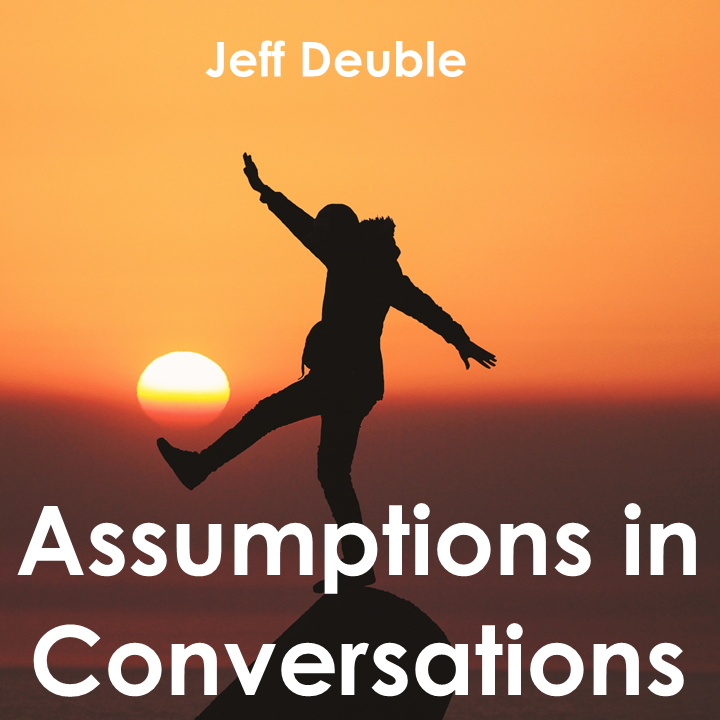
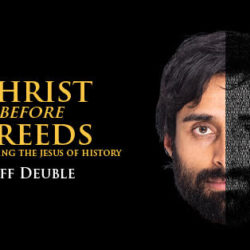

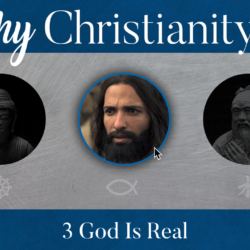

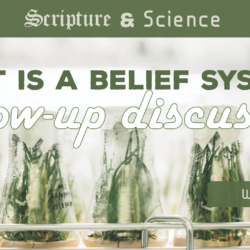
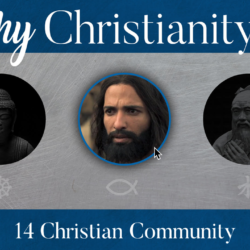
This is a good discussion. Presuppositions being challenged are ultimately what allowed me to look at the Bible differently and eventually ended up BU. However, there are many other presuppositions that I held strongly from fundamentalist style beliefs or my youth that needed challenged and they continued while(or after) coming to unitarianism.
So, a list for your own challenge presuppositions:
1) When Paul wrote “all Scripture is inspired”—the NT did not exist, so legitimately Paul was referring to the OT for teaching, correction, rebuke etc…
2) When Jesus walked the earth, similarly, the NT did not exist–in fact, I think Pauls letters were possibly being spread well before any Gospels were written.
2a) Because of that supposition—I challenged my understanding of Matthew 5-7 in light of a Jew who believed YHWHs law and then later changed my belief to that of Matthew 5-7 being a correction of Pharisee/religious leaders traditions and mis-uses of the Torah to justify bad behavior. I don’t think Jesus was correcting the Torah, but correcting misuse of it. And then I began to see that behavior/talk all through the Gospels.
3) Is it OUR end times? When I first read the NT as an adult–I took on a heavy presupposition that all this urgency and end times talk referred to our times. So—I thought I lived in THE end times and thus lived that way. I lived quite meagerly for US standards and even my wife was concerned I’d lead her towards homelessness at one point(well hey, Jesus was!). I went around with other preachers preaching about hellfire and damnation along with the Gospel. Now–I don’t think we are in the end times. I could be wrong–but until i see a Temple rebuilt in Israel and sacrifices continue, I won’t be concerned. Paul said it pretty clearly in 2nd Thess. Basically, the words spoken in the NT need to mainly be applied to the listeners and how they would hear it, not me possibly.
4) All throughout history—the majority could not read. I didn’t realize til about 6 years ago after reading Ehrman… how illiterate humans were most of history. It makes sense–I just never thought about it. So it made me realize when seeing believers in the NT, most couldn’t read. Most were being read-to. Their beliefs were spread by word of mouth, how easy would it be to be fooled in this environment? We are in such a bubble of history unknown to any others in so many ways. It makes sense that the Trinitarian beliefs lasted so long when most wouldn’t have even had a Bible in their hands, and then most couldn’t even read it if they did! The Bible ended up being the book that made most of the world literate.
5) We are tribal people. We don’t want to challenge the mainstream beliefs of our society to stay accepted. It makes sense that if there were unitarians and they lost out by sheer numbers of incoming Gentile catholic believers in Greek mysticism and then the debate mainly stayed among those who could read.
I’m sure theres more I can’t think of right now. And I’d be willing to challenge my own if others want to continue this dialogue.
Hi Sean & Jeff.
I found this podcast very helpful. GREAT TOPIC. Some great insights and tips given.
Asking good open questions at the right time with someone is KEY (then stop there).
These are skills we all need to continue to develop. Evangelism is largely about both planting and watering seeds according to the leading of the Holy Spirit. The rest is up to the individual as the Holy Spirit works on their heart (their free remaining intact).
Dropping all presuppositions and genuinely re-examining established assumptions is not easy. These are part of how we make sense of and feel safe in our world. Taking off my own trinitarian glasses and choosing to really and truly be honest about having a SOLA SCRIPTURA basis for my beliefs is what got me over the line as well. Suddenly scripture ALL fits together without contradictions. Changing from a trinitarian to a “completely convinced” monotheist for me took a period of about 2 years (I came out of my closet).
Prefacing a contentious topic with a warning … “You might not agree with what I am about to share, but please hear me out, consider what I am saying. I am not asking you to agree with me.”
I love what Sean shared in the last 2 minutes of this podcast. Absolutely 100% agree and take the same position myself. I am constantly exposing myself to positions I believe I probably don’t agree with as I always want to be open to correction and growth.
I have handed several copies of Jeff’s excellent easy-to-read book “Christ Before Creeds” and will continue to do so.